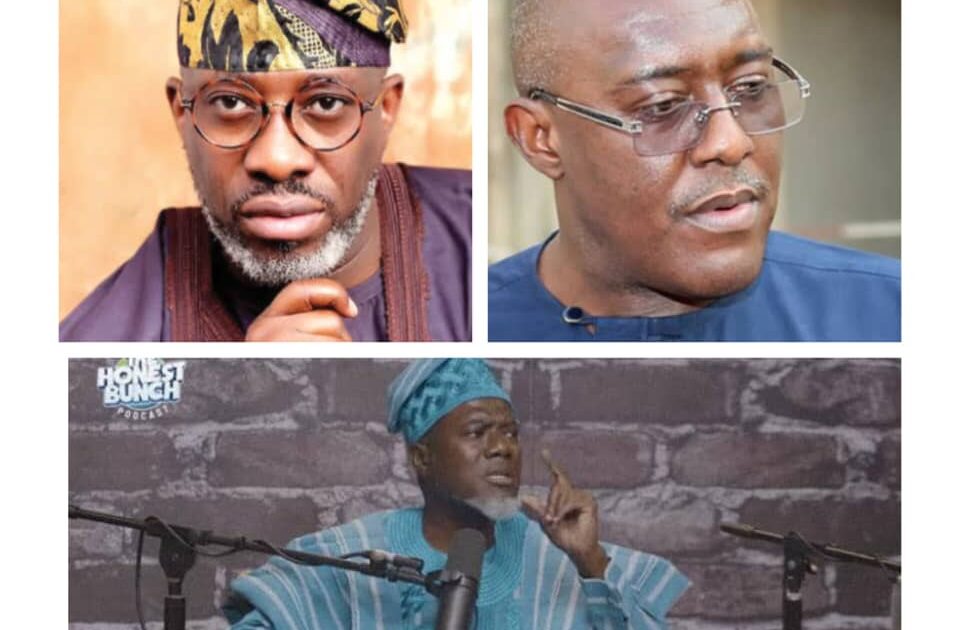The controversy surrounding the appointment of Segun Showunmi as spokesperson for former Vice President Atiku Abubakar during the 2019 presidential campaign took a new turn with the confirmation from Olisa Metuh, former National Publicity Secretary of the Peoples Democratic Party (PDP). Metuh corroborated Reno Omokri’s claim that he, Omokri, was instrumental in Showunmi’s hiring, having received a recommendation from Metuh himself. This confirmation, obtained directly from Metuh, sheds light on the process leading to Showunmi’s appointment and seemingly validates Omokri’s version of events. Metuh recalled the circumstances surrounding the recommendation, stating that it occurred in 2018 while he was still active in politics. He initially considered recommending Deji Adeyanju, but Adeyanju’s departure from the PDP led him to suggest Showunmi instead. Metuh instructed Showunmi to contact Omokri, leading to the subsequent interview and negotiation of terms.
Metuh’s account dismisses any notion of controversy surrounding Showunmi’s appointment, reinforcing Omokri’s earlier assertions. He emphasized the clarity of the process, reiterating that there was no dispute regarding Omokri’s role in hiring Showunmi. Further cementing the narrative, Metuh highlighted that both Omokri and Showunmi are no longer members of the PDP, suggesting that the issue holds little current political relevance. This clarification seeks to put the matter to rest, emphasizing the historical nature of the event and downplaying the need for further debate.
The story originated with Omokri, who served as spokesperson for former President Goodluck Jonathan. During an interview on The Honest Bunch podcast, Omokri refuted suggestions that his public prominence stemmed solely from his association with Atiku Abubakar. He detailed the events leading to Showunmi’s appointment, emphasizing his role in the hiring process. Omokri presented himself as a “meticulous record keeper,” offering detailed information about how he received Showunmi’s resume from Metuh, interviewed him, negotiated his salary, and ultimately facilitated his appointment as Atiku’s spokesperson. He urged media outlets to verify his account with Metuh, presented as an eyewitness to the events.
Omokri’s detailed account, published on Facebook alongside the podcast interview, lays out the sequence of events. He highlighted Metuh’s recommendation, Showunmi’s subsequent submission of his resume, the interview conducted by Omokri, and the final negotiation of terms with Atiku Abubakar. Omokri insisted on the veracity of his claims, challenging anyone who might dispute his version of events. He offered to provide evidence if necessary, although expressing reluctance to do so publicly. This implied possession of further documentation adds another layer to the narrative, underscoring his confidence in the accuracy of his account.
In response to Omokri’s public claims, Showunmi initially dismissed them as “rubbish,” contradicting the narrative presented by both Omokri and Metuh. This denial created a clear conflict in the accounts of the three individuals involved. However, attempts to reach Showunmi for further clarification remained unsuccessful. Unanswered calls and text messages left his initial denial as his sole contribution to the unfolding narrative, leaving room for speculation and further interpretation. This lack of response adds a layer of complexity to the situation, hindering a complete understanding of Showunmi’s perspective on the matter.
The conflicting accounts create a puzzle, with Omokri and Metuh presenting a unified front while Showunmi’s denial stands in stark contrast. The absence of further clarification from Showunmi leaves the situation unresolved. While Metuh’s confirmation strengthens Omokri’s claims, Showunmi’s initial dismissal and subsequent silence muddy the waters. Whether this is a genuine difference in recollection or a deliberate attempt to rewrite history remains unclear. The lack of further engagement from Showunmi leaves a void in the narrative, preventing a definitive conclusion and leaving room for continued speculation. The episode underscores the complexities of political appointments and the challenges of reconstructing past events with competing narratives.


